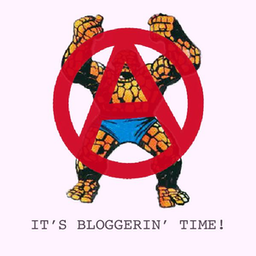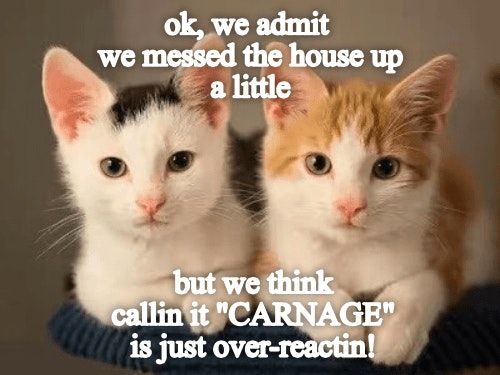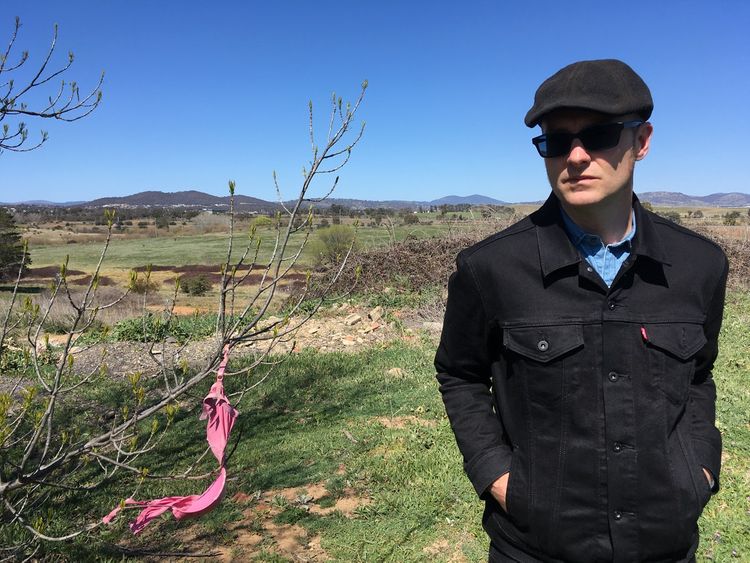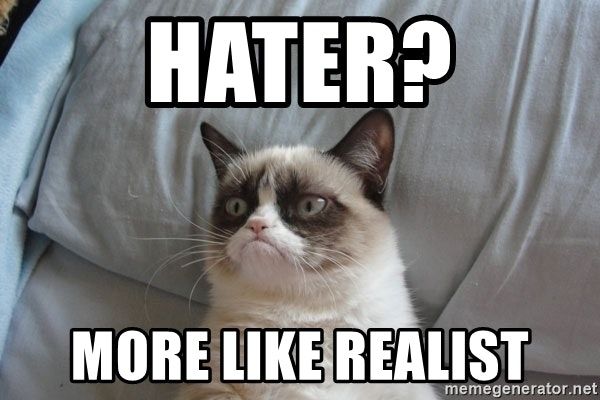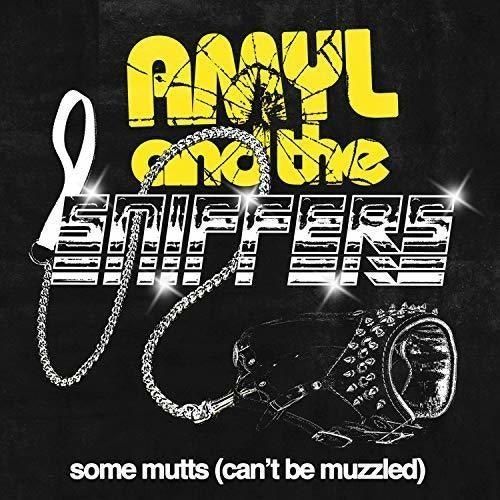Feel Weird Hits Of The Summer
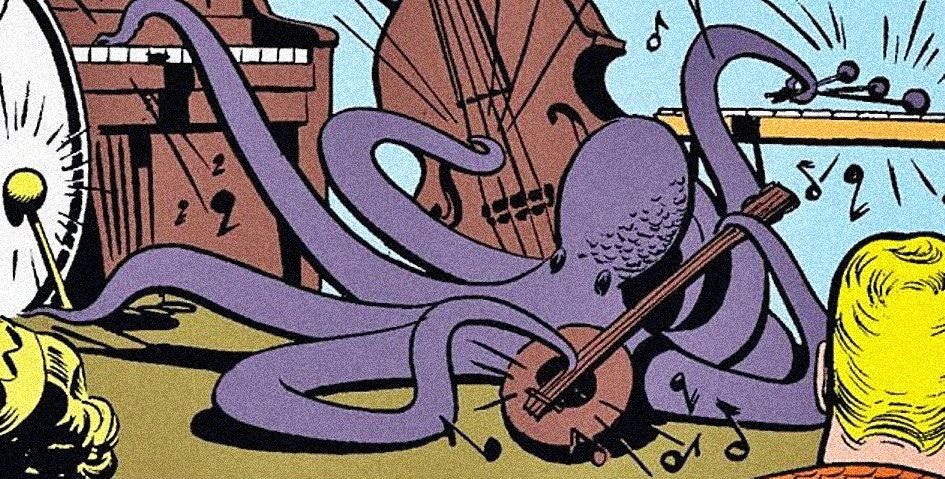
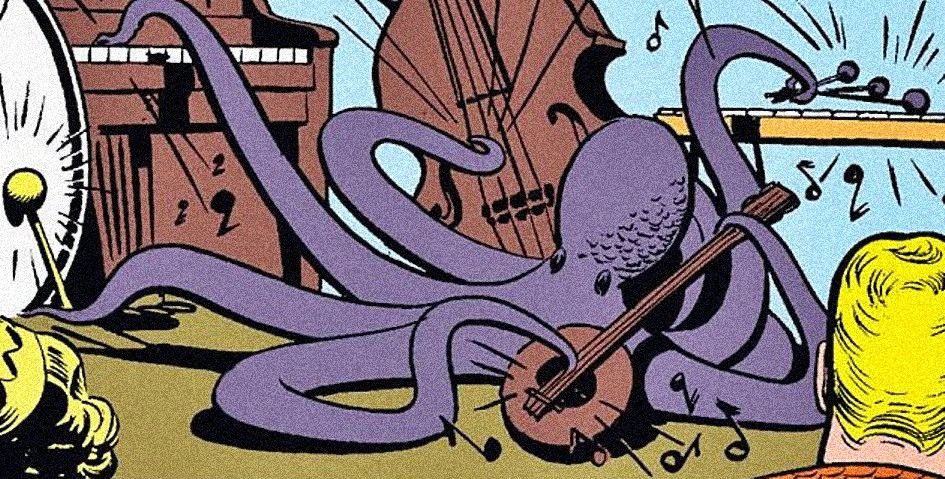
I have grievances for days. Some set into stone back when The Village Voice was still printing show previews. I still maintain my entirely rational distrust of a media industry that, even as diversification of staffs has hella reduced consensus, and straight up payola has been largely replaced by the exchange of on-and-offline social currencies, remains passive in the face of ethical fudging that wouldn’t fly at American Racehorse and remains straight up committed to the boosting of art that, to put it kindly, I absolutely would kick out of bed for eating crackers. Still, despite still regularly brushing the manes and cooing in the long ears of my private stable of high horses, I don’t talk nearly as much shit about my peers as I used to.
Part of this is the natural progression of meeting people in real life. And either *extreme Lisa Simpson talking to Moe voice* genuinely liking them or, at least, being forced to see them as human beings perhaps not entirely bent on the specific destruction of my soul. And I imagine there’s the usual complicit softening, fear, and compromise that comes with age. For sure, there’s occasions I bite my tongue out of fear of retribution against my partner (I don’t need to tell you that it’s the female artist who would bear the brunt of any blowback I caused with my big mouth). But the main reason for my softened online persona is the slow realization that, as annoying as Best Of lists and numerical designations of merit are, most critic’s end goal is usually the same as mine; the pure irritating pleasure of thinking about music way too much.
The point of all this is not a discussion of criticism. Relax. But I do want to talk about some critic shit: Songs of the Summer and “relating” to music.
I know that a proper Song Of The Summer should be massively popular. Method Man + Mary J Blige’s “You’re All I Need” is the archetypal Song Of The Summer. “You’re All I Need” is also arguably the last popular song I know. With no disrespect to men my age who pursue mass youth culture like Zeus reviewing nymphs, there’s a fine line between acknowledging the culture and being a thirst trap for “you’re the one guy who gets it” praise from twenty-something poptimists with a teardrop tattoo for every year that Justin Timberlake has been away from not sucking. I’m old and Iceage is my favorite Boy Band. I can only make my own aesthetic distinctions with the pop army I have not the pop army I wish I have. So when I say my songs of the summer are Native Cats “Run With The Roses” and Armand Hammer’s “Leopards (ft. Nosaj)” feel free to take the distinction with a grain of salt and the full knowledge that I am shameless in my framing device. Doesn’t mean I won’t die on this hill. It’s getting humid as hell and these are the songs. I’m self quarantining, so who’s to say anyone exists outside these walls anyway, and these are the songs. Anyway, it's a weekly newsletter. I only have to mean this shit for another seven days tops. But right now? When I say “Leopards” and “Run With The Roses” are the songs to play while the sun shines, Margarator Plus works overtime, and the dealer texts they’re on their way when you know they haven’t left Rockaway? I MEAN IT, BABY.
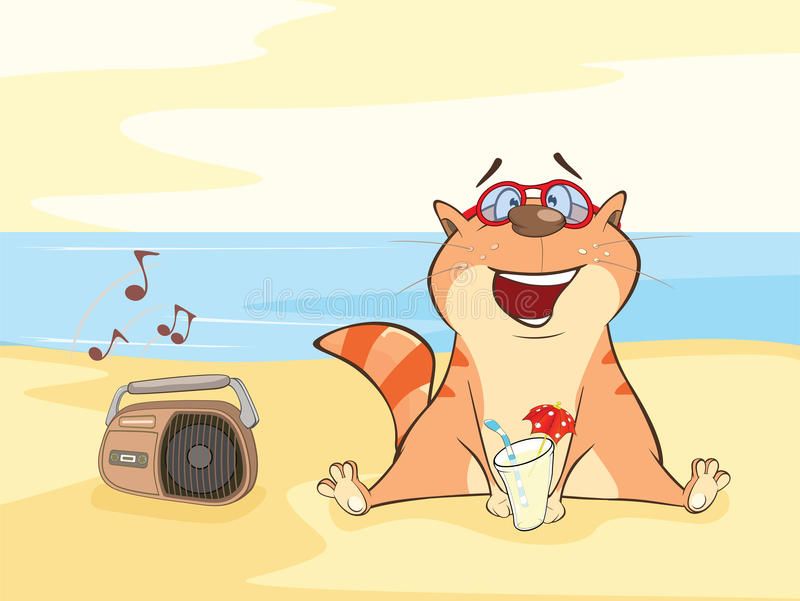
I also know that, besides being popular, summer songs should also be partay songs. But, without giving you a 2020 explainer that you don’t need, who is throwing a party this summer, and who would even go? Only parties this summer will be protesting together in the streets for those killed by the racist state or sitting shiva at a distance for those killed by the virus. In the season of flu and cops, a chorus of “shots shots shots shots shots shots shots etc.” hits different. And the crowds chanting Ludacris at the police is already the official party song of the summer. In this context, there’s no pressure for a song to have to be all that beachy. Mind you… I think both Armand Hammer (Elucid and billy woods) and Native Cats (Chloe Alison Escott and Julian Teakle), from the resort towns of New York City and Hobart respectively, are more fun than however fun clambakes are supposed to be. That being said, both duos have occasionally been assigned High Seriousness by critics both serious and high, so I get that reasonable people can disagree.
Beach blanket bingo concerns aside, “Leopards” (off of Armand Hammer’s correctly lauded new album Shrines), has, considering our time and place, requisite summertime vibes to burn. The song may not be as beach specific as “Summer Loving” but, using the Dazed and Confused soundtrack as a summer cruisin’ litmus test, “Leopards” certainly works as the backing track to a day trip drive to the ocean on Robert Moses’ racist parkway. Or, if you’re still respecting the lockdown like you am Legend, “Leopards” works as one takes long solitary pulls from a summer beverage as one glowers at maskless beach goers on TV. Heck, if more receipts are required, “Leopards,” as produced by Fat Albert Einstein (Willie Green executively produced the full album with woods/Elucid), sounds a lot like Blue Cheer’s version of “Summertime Blues.”
“Leopards” starts with the suspense of sticks galloping over high-hat, and then erupts to Sonny-Sharrok-hacking-away-at-Sabbath doom metal lurch. Then billy woods comes in. woods, who has rarely sounded so lithe, is still the (non-problematic) Michael Gira, pronouncing man’s dissoluteness from on high, to Elucid’s freely associating (non-problematic) Mark E Smith. Even when ruminating (in part) on the nature of masculinity, woods keeps his wry eye on the Whodini-documented vagaries of those around him. As a rapper, woods is obsessed with the ways one person can betray or disappoint another. He’s a one man hardcore scene. “Leopards is, woods says, in part about the “circumcision manhood rituals of West Africa” and an examination of masculinity through that lens. But even if you aren’t up on that particular topic, anyone who has spent a minute in an art industry, or ever left their house at all, can hear the line “hardened grifters give me dap” and feel it in their bones.
The song’s chorus, which wouldn’t be out of place in a block rockin’ beats actual summer hit of any one of the last four decades, is provided by Nosaj, whose old band New Kingdom helped create (along with artists and producers like Scotty Hard, Dr. Israel, and Cibo Matto) a boho post-everything NYC scene in the ‘90s. While not terribly prolific, Nosaj has, since New Kingdom played bills with Jon Spencer Blues Explosion, always been comfortable in the sort of dirging groove that “Leopards” pulls off. So it’s a pleasant non-surprise that Elucid, being a scholar of all things NYC noise, brought him in. For Elucid’s part, his pleasure in having a psychedelic riffage as backbeat to lines like “I’m rehearsing for a world where you don’t exist” is palpable. I don’t pretend to be able to parse Elucid’s topic. He’’s, as is often the case for both rappers, “Ballad of a Thin Man” accusatorially oblique. But whoever he’s indicting for “performative rebel rhetoric” probably doesn’t feel too hot right now.
If calling “Leopards” a summer song is putting too much weight on it’s heavy riffage (a groove metal crunch that’s vibe is returned to on “Dead Cars ft. R.A.P. Ferreira” and “The Eucharist” later on the album), that again presumes that summer jams have to have lyrics about eating ice cream out of a dolphin’s blowhole on a Friday night. But look at the unemployment numbers. There are no Fridays. There are no seasons. We are free, in a fashion. Or, as Stephanie Zinone, in that paean to the ephemeral nature of both seasons and authority, Grease 2, says, “I’m free every day. It’s in The Constitution.”
So summer songs should, like doom metal, be fun. Even when the end of the world is on the table. But “fun” can be a big, sun blocking umbrella. “Leopards,” ends like 1970’s premier goodbye Summer of Love summer jam, “Black Sabbath,” begins… with the sound of thunder.
As with Black Sabbath’s namesake song, Native Cats’ “Run With The Roses,” came out in a February. But the Sabbath single was released in the United States in June of 1970 and I’m writing about the Native Cats song in June of 2020 so, with no one in my quarantine to tell me different, they’re both summer songs. Like “Leopards,” “Run With The Roses” uses as its foundation a sonic architecture that is practically brutalist. The drums are all kick and toms, Julian Teakle’s bass almost a caricature of “driving” (not a complaint). And, like both billy woods and Elucid, singer Chloe Escott’s vocals can read as scornful even when the intent is vulnerability. I’ve called Native Cats “Sleaford Mods for lovers” and meant it. For over a decade, the duo have been using a skeletal bass+synth+(occasional)nintendo post-punk (that they call “electronic pub rock”) as a tool to probe the humiliations and (occasionally cheap) victories possible in very human interaction. But smoldering discontent can easily run into a sense of remove, something Escott has always taken pains to avoid. To say that Native Cats is one of the best contemporary post-punk bands in the world is about as faint a compliment one can give. The field is not exactly crowded with excellence. But I think Native Cats are one of the best bands going in any genre. So it’s especially satisfying that on “Run With The Roses,” Escott again pushes her post-punk swaggering tone to a place akin to soulfulness. While “I had a hero for a couple of weeks” works as a cool line in any context, Escott follows it immediately with ““there were parts of my nature too shit hot to hide/from certain angles I could have just died,” and all the cool falls away to reveal the exploding sun underneath. (The vocals on b-side “Sanremo,” also, are as plaintive and exposed as anything she has ever done.)
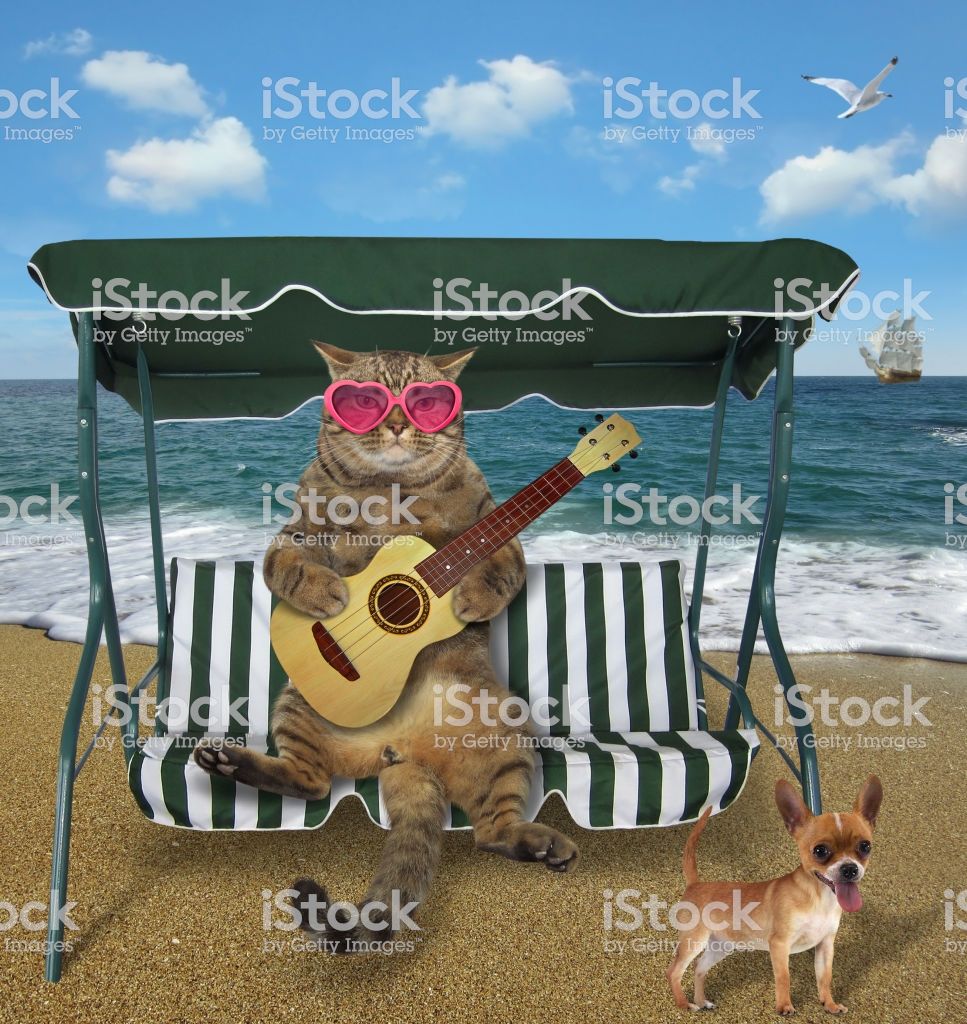
While there’s plenty of debate about the “relatability” as a reasonable metric for judging art, most people agree that summer songs, as a subset of pop music, should be relatable. Preferably relatable to teenagers. But teenagers, thank god, are no longer my lookout. I broke with teenagers, as a teenager, when they made Pearl Jam and Nirvana a package deal. And I do so again every year when they do self defeating shit like deciding that they can relate to wearing their best dress in the rain, aspiring to a level of hackneyed drama that allows only for disappointment at best and the cosplaying of romantic love, a life as a pop singer’s echo, at worst.
And I feel equally alienated from what critics of “indie” (or whatever) consider relatable. More often than not, when I read a review quoting some grad school angst as universal truth, I think, “wow, reviewer, that boring shit is a thing you feel, expressed. Bummer.”
Conversely, it’s nice to feel things.
Well, I certainly relate to the songs of Native Cats and Armand Hammer. I mean, as far as that goes.
In Danez Smith’s recent book of poetry, “Homie” (not its actual title), the author doesn’t exclude anyone from purchasing or enjoying their poems. Smith does note that “Homie” is the title on the cover because they didn’t want non-black people to say the actual title aloud. But that seems like a perfectly reasonable proactive move that only the thinnest of (white) skins would be bothered by. I still bought the book, still read “shout out to…” (not its full title) knowing full well that my experience was not the default experience being addressed, knowing full well that I don’t get to be invited to everything, and still thrilled to that poem and the rest of the book in the same way I did when I first heard “Smells Like Teenage Spirit.” But what was the thrill? I mean, my kicks felt genuine, my pleasure in reading an expert of Smith’s caliber work is real… but, shit, I’ve been called a culture vulture by skinheads on Facebook so maybe a touch of self interrogation is in order…
And this is where you’d think it gets tricky, but then it doesn’t. Whether all art is for everybody is a conversation worth having I suppose. The default answer to some people is “of course art is for everybody. It’s how we bridge otherwise insurmountable chasms and also art is powerful and beautiful and and and…” But I don’t actually know about all that.
In the poem “how many of us have them?”, Smith uses the Whodini song “Friends'' as a jumping off point. His poetic concerns are similar to Armand Hammer’s. His view of friendship is considerably more optimistic than woods or Elucid’s, but all three writers pick at masculinity and male friendships till they draw blood. Is this the universality that the “let art bring us all together willy nilly” crowd speaks of? Maybe, but Danez Smith, without making a big deal of it, makes it clear that universality need not be extended to those who have harmed him and his. And when Chloe Escott sings “there was a part of my nature too shit hot to hide.” I relate HARD to that. But what I am relating to, by necessity, must have its meaning perverted before I can take it in. I can relate to being incapable of restraining my anger or fear or spite. But I can’t relate to being a woman who felt their “body happening to people on the street.” Art can’t bridge that and it does no one a disservice to admit that.
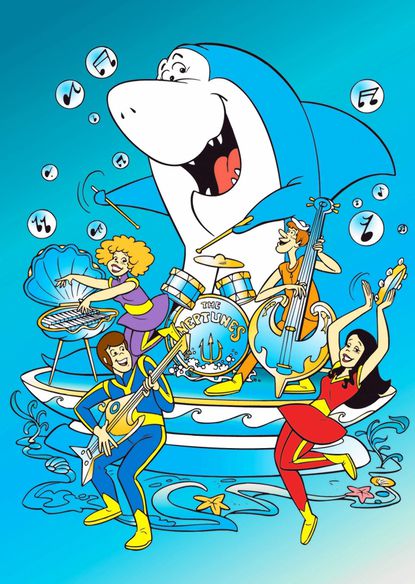
But, also, while it’s as fun to overthink everything as it is music, it doesn’t matter what the root of my enjoyment of any of this is. Not to Smith, not to Armand Hammer, not to Native Cats, and not to you. Neither they all nor you needs a self-flagellating analysis of the topic. Look, you can’t ever truly know your family, your friends, not anyone. You can’t ever truly know your husband or wife, not the way you know yourself. If we could, there’d be no art, or divorce, in the first place. So we’re going to pretend that art, feeble art, can bridge a gap that a lifetime of fucking, of being literally inside each other, can’t? Pshaw I say. P.S.H.A.W. Some truths can not be entirely shared, not really. So we make the political and moral choice to pretend otherwise, to try. But, still, ONE DOESN’T NEED TO RELATE *EXACTLY* TO ART TO VALUE IT. NOR DOES EVERYONE *GET* TO CLAIM A RELATION THAT SIMPLY ISN’T ALWAYS POSSIBLE. Art is not, as much as some would like it to be flattened, universal. It would be tedious if it was. To state this is not to deny entry, it’s merely to admit that sometimes there just isn’t a door.
Look, it’s fine. No one is going to take your copy of Lemonade away. Sometimes, in this life of consumption, you just have to leave relatability on the curb and cop to coming at something sideways, or whatever angle is available to you. For Smith, woods, Elucid, and Escott, there is, even setting aside the incontrovertible bad ass-ery of their respective musics, a shared resoluteness of the language that is an entry point independent of any universal experience. I don’t want to read writers like me. (I don’t mean “like me” in the “race/gender/class/ethnicity/life experiences” etc. sense. I mean “like me” in the “run-on sentences and convoluted digressions” sense.) So that works. I can relate to the songs and the poetry and, also, maybe I can’t entirely and, also, so what… I take what I can from it and it’s got a good beat and I can dance to it. (Metaphorically speaking. I can’t dance to anything, literally.)
(tbc when I say “you” in the above paragraph, I mean “I.” I know my readership and I’m grateful that plenty of you ain’t white cis men and, for many of you, the art I’m discussing relates directly to your experiences.)
Counterpoint 1.: This borderline blase dismissal of the potential for shared communal experience in all situations can easily lead down a slippery slope of noxious bullshit like gatekeeping marginalized kids out of punk, industrial, enjoying the combination of breakfast and lunch, etc. Not worse, but still not great, the end result can be the “Stuff White People Like” blog. So let’s not go too crazy.
Counterpoint 2: I forgot about instrumental music. I guess that’s universal. If the Atlanteans had had the good taste to not degrade the power of music by throwing talking on top of it, there’d be no problem. But I like the talking on top. If I wanted music without words, I’d just go for a walk in the park. (Backup joke: If I have to listen to post metal to achieve mutual understanding, I think I’d rather stay confused.) (Still workshopping it.)
So, anyway… neither “Leopards” nor “Run With The Roses” are massively popular, keg party appropriate, or universally relatable. This is a real pickle in terms of my demanding their consideration as Songs Of The Summer 2020. But not an insurmountable pickle. Besides the obvious consideration of my not actually caring about Songs of The Summer and just wanting a framing device to talk about some artists I love, we also have the fact that we are living through some of the most beneficially unsettled times in memory. In three months, we’ve gone from morosely having internal debates whether we could swallow our pride and consciences and vote for Biden in the name of some amorphous “greater good,” to seeing actual goodness and love being shouted from bridge to bridge in cities nationwide. Taylor Swift has gone full antifa. They’re publishing abolitionist manifestos in the New York Times. Adults are finally being told that it’s inappropriate for them to be emotionally invested in Harry Potter. These are times of wild grace and possibility I tell you. This could be the first summer, since the Earth first cooled, that doesn’t suck. And we, in a sign of shared luck if nothing else, have the songs equal to this moment, this potential unsuck summer.
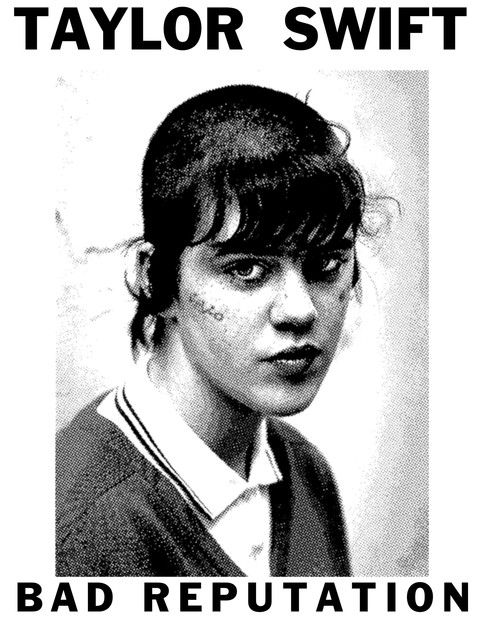
Thanks for reading! Please share and subscribe!
